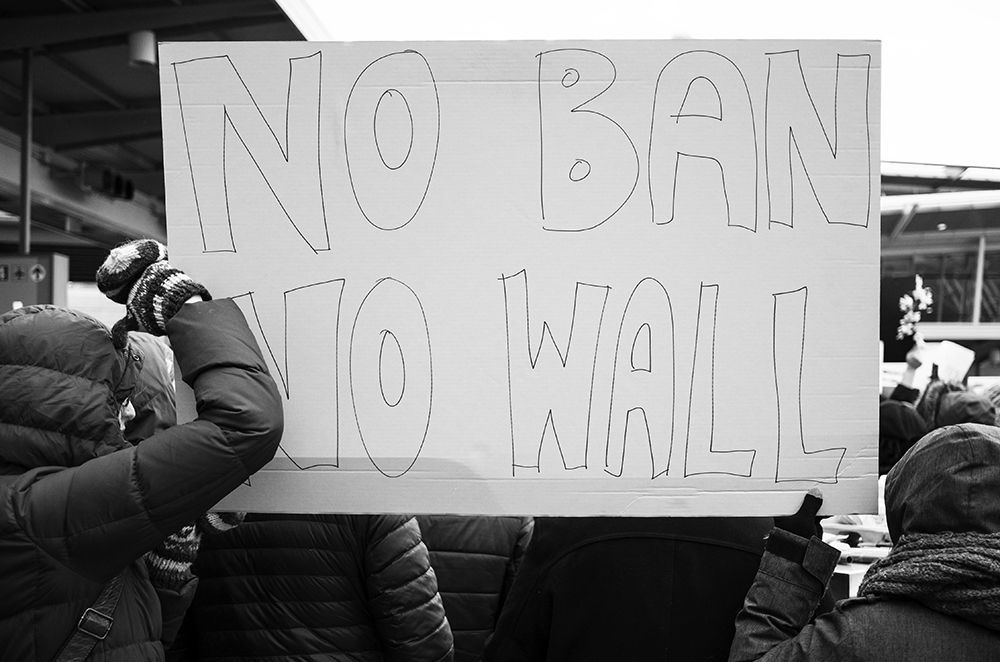Ghizlane Zerzkhane | Contributor
Featured image: President Trump’s recent executive order to ban immigration from select countries prompted protests around the world. | Courtesy of Wikimedia Commons
Times are tense for the Muslim community following President Donald Trump’s executive order to ban immigration into the United States by people originally from Sudan, Somalia, Syria, Yemen, Libya, Iraq or Iran.
The executive order is in effect for 90 days after January 27, preventing citizens of the banned countries from entering or re-entering the United States, regardless of whether they are green-card holders.
The ban was originally labelled as a “Muslim Ban” by numerous media outlets and has been seen as an attempt to fulfill the promises Trump made in his campaign.
Osgoode Hall Law School launched a forum last week to discuss the ban, its effect on Muslim communities and students within Canada.
The forum was also utilized as a means of questioning Canada’s history of religious and racially motivated bans.
The panel included professors Sean Rehaag and Amar Bhatia, as well as Sara Kim Veller, a student representative from the Canadian Association of Refugee Lawyers.
The speakers discussed the way the ban fits within modern trends in immigration policies throughout United States and Canada and how aspiring lawyers and activists can become involved in aiding affected refugees.
The forum also shed light, however, on Canada’s direct contribution to the ban.
According to Rehaag, the US-Canada Safe Third Country Agreement is seen as allowing both governments to have better control over the spread of refugees so as to best provide aid.
However, the agreement defines the United States as safe for refugees, and states that people seeking refugee status must make a claim in the first of the two countries they land in, banning those who arrive in the United States from crossing the border and accessing Canada’s refugee system.
Rehaag stated that Parliament held a meeting to discuss temporarily pausing the agreement until the 90-day ban is over, which would allow those barred from accessing the United States to be able to enter Canada.
International students at York from the seven banned countries could be directly affected by the ban and have been advised by York International to not travel to the United States in the next three months.
The Minister of Immigration Refugee and Citizenship Canada and York history graduate, Ahmed Hussen, confirmed that anyone holding a Canadian passport and dual citizenship of one of the seven banned countries will not be affected by the travel ban, but any Canadian temporary residents who are citizens of one of the seven banned countries will be affected by it.
Since the forum, questions have been raised as to the constitutionality of the executive order, resulting in it being momentarily suspended by United States federal judges.




